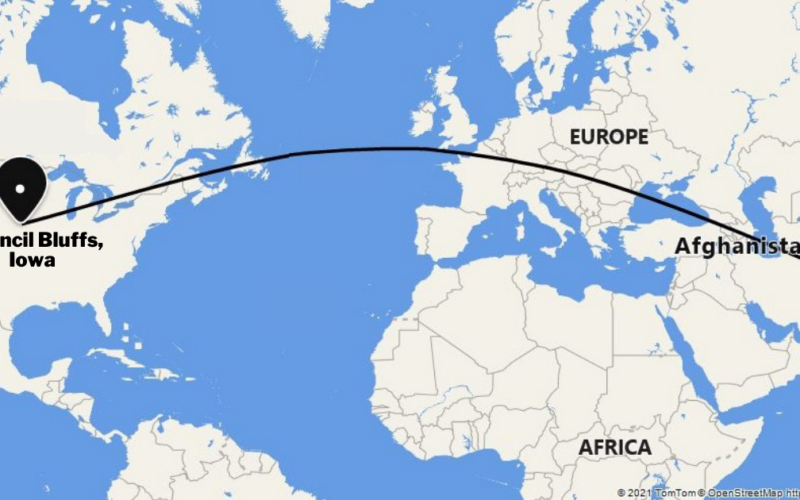All Care Opens Doors to Afghan Refugees

Over 120,000 people fled Afghanistan when the United States and allied troops left the county at the end of August 2021. As Afghan refugees seek safety and security in the United States, and right here in our metro community, they receive aid from Lutheran Family Services who offer concern and compassion alongside a helping hand for meeting immediate needs such as jobs, housing, food, clothing, and the coordination of healthcare.
Most Afghan evacuees arriving in the U.S. have completed basic health screenings and vaccinations, including COVID-19 vaccines. However, underlying physical and mental health needs are often undetected in these initial screenings, which focus primarily on identifying infectious diseases. A particularly pressing concern is that many of refugees have immediate or long-term physical and mental health conditions caused by or exacerbated by their traumatic experiences.
In early February, All Care began noticing that several Afghan refugees had scheduled appointments. All Care quickly realized that weekly refugee clinics would be a better alternative than individual appointments, due to the initial language barrier. Afghan refugees have used both Pashto and Dari languages. Although All Care has a MARTTI system that helps providers to interpret to over 250+ languages, it is most effective to have an in-person interpreter, whom Lutheran Family Services provided for the Afghan patients.
Carmen Florez, All Care’s Patient Access Supervisor, organized groups of refugee appointments through Lutheran Family Services and coordinated each patient’s insurance. Most of the patients had established Medicaid upon arriving to All Care. Sarah Bogacz, RN, All Care’s Medical Clinic Coordinator, contacted Pottawattamie County Public Health (PCPH) to determine the medical needs of the patients, including a refugee 90-day physical, and requirements for reporting. PCPH also attended the clinics for support. Florez stated, “It was really heartwarming,” regarding the refugees’ patient visits to the clinic. “One man kept saying, ‘Thank you. Thank you.’ to me.” With pride, Bogacz stated, “All team members who were involved in [refugee patient] care exhibited how we live and breathe our mission and vision at All Care Health Center. It was a collaborative effort to ensure all medical and preventative care needs were being addressed with each patient.”
Many refugees have been awaiting a vetting process to determine their resettlement. While the Omaha-Council Bluffs metro is an attractive destination for the refugee population, due to the welcoming culture, lower cost of living, available jobs, and vibrant philanthropic community, it is ultimately the decision of the federal government as to how many refugees settle in each state. Immigrants still face many challenges not part of the daily life of Iowans; they are searching for employment and learning to navigate their new home and learn English.
As of January, 2022, 700 refugees have been resettled in Iowa, since November of 2021, with that number expected to grow to more than 1,000. The journey to Iowa has been difficult. Refugees called tents “home” on military bases while they waited for permanent housing. As of March 15, 2022, over 4,000 refugees remain in hotels and other temporary housing while they await housing, across the United States. They will likely remain in this status for several more months, while each continues ongoing concern for their family members who remain in Afghanistan due to the Taliban blocking further evacuation of Afghan citizens, on February 27, 2022.
